Sakai Takayuki
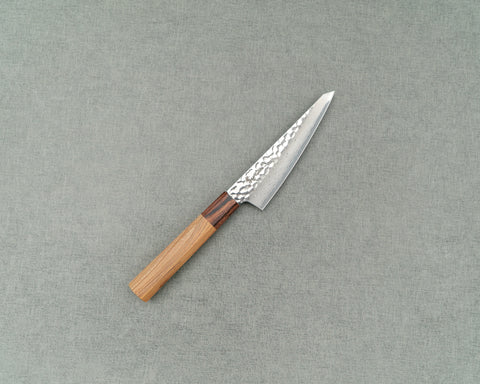
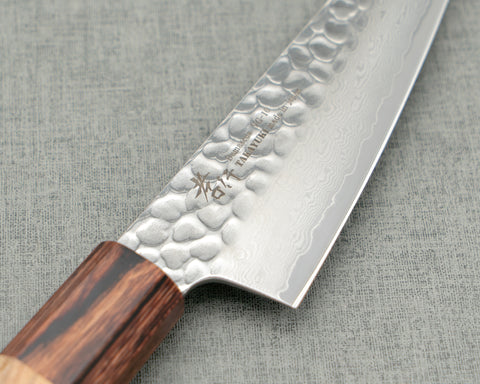
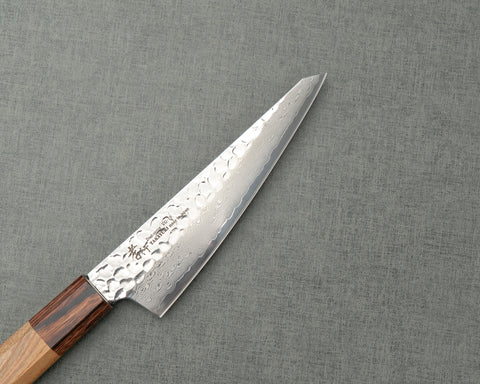
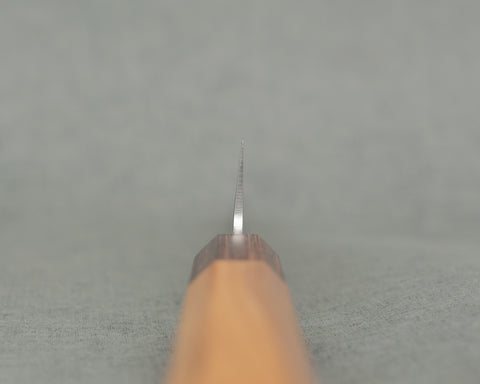
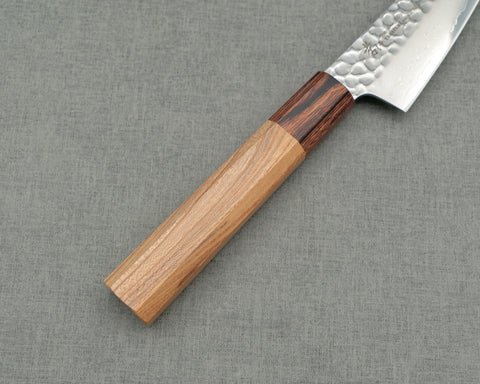
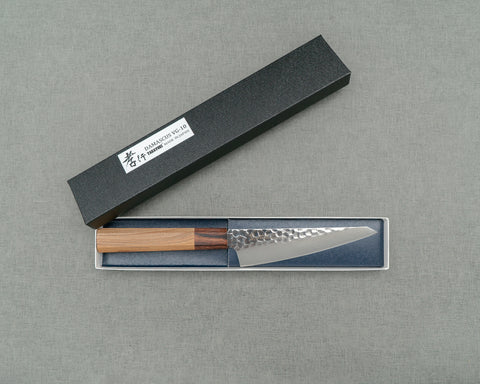
Sakai Takayuki 33 Layers Tsuchime Damascus VG10 150mm Honesuki with Wa-handle
目前沒有提供取貨服務
This Honesuki is made with VG10 core steel, heat-treated to 60 HRC, with a smooth flat grind and fairly thin thickness behind the edge. Tsuchime pattern is hammered onto 33 layers of stainless steel cladding to create an interesting look. The overall fit and finish is good for this price range. Paired with a wa-handle made of Japanese Elm wood.
Spec:
- Origin (Made in): Sakai, Japan
- Brand: Sakai Takayuki
- Model No.: 07478
- Knife Type: Honesuki
- Blade
- Construction: San Mai
- Grind: Double-edged Blade (50/50 Grind)
- Hagane (Core Steel): VG10
- Jigane (Cladding): Stainless Steel
- Hardness: 60 HRC
- Hand-sharpened
- Blade Finishes:
- Damascus
- Tsuchime (Hammered)
- Blade Length: 150mm (5.9")
- Blade Height (at heel): 40mm
- Spine Thickness
- Above heel: 2.7mm
- Middle: 2.5mm
- Handle
- Shape: Hachikaku (Octagonal)
- Material: Keyaki (Japanese Elm)
- Kuchiwa: Brown Pakkawood
- Length: 136mm
- Overall Length: 296mm
- Weight: 132g (4.66oz)
- Mark: In Japanese Kanji "Takayuki" (孝行) ; "Damascus VG-10" ; "Takayuki Made in Japan"
About Sakai Takayuki 堺 孝行
Sakai Takayuki is Sakai's top knife maker and artisan workshop. Japan's Sakai region has a knife making history of 600 years. Among these knife makers, Sakai Takayuki is a representative of Sakai's long history of making blades. The quality of the finish and details of the forging technique are handed down over generations of fine craftsmen. Today Sakai Takayuki is sold to over 100 countries around the world. Their uncompromising knife making passion has attracted passionate customers beyond the border of Japan.
Care:
Wash and dry with a soft sponge, and safely store after use. Avoid cutting into bones, frozen foods, hard fruit pits.
Cutting Surface:
Recommended cutting surface: wood, rubberized boards and high-end composites, and quality plastics such as polyethene make acceptable cutting surfaces, and will help protect and prolong knife’s edge. AVOID glass, metal, countertops, and other rigid, non-forgiving surfaces.
Sharpening:
We recommend sharpening all quality Japanese knives on whetstones, as we believe they yield the best results for your knives.
